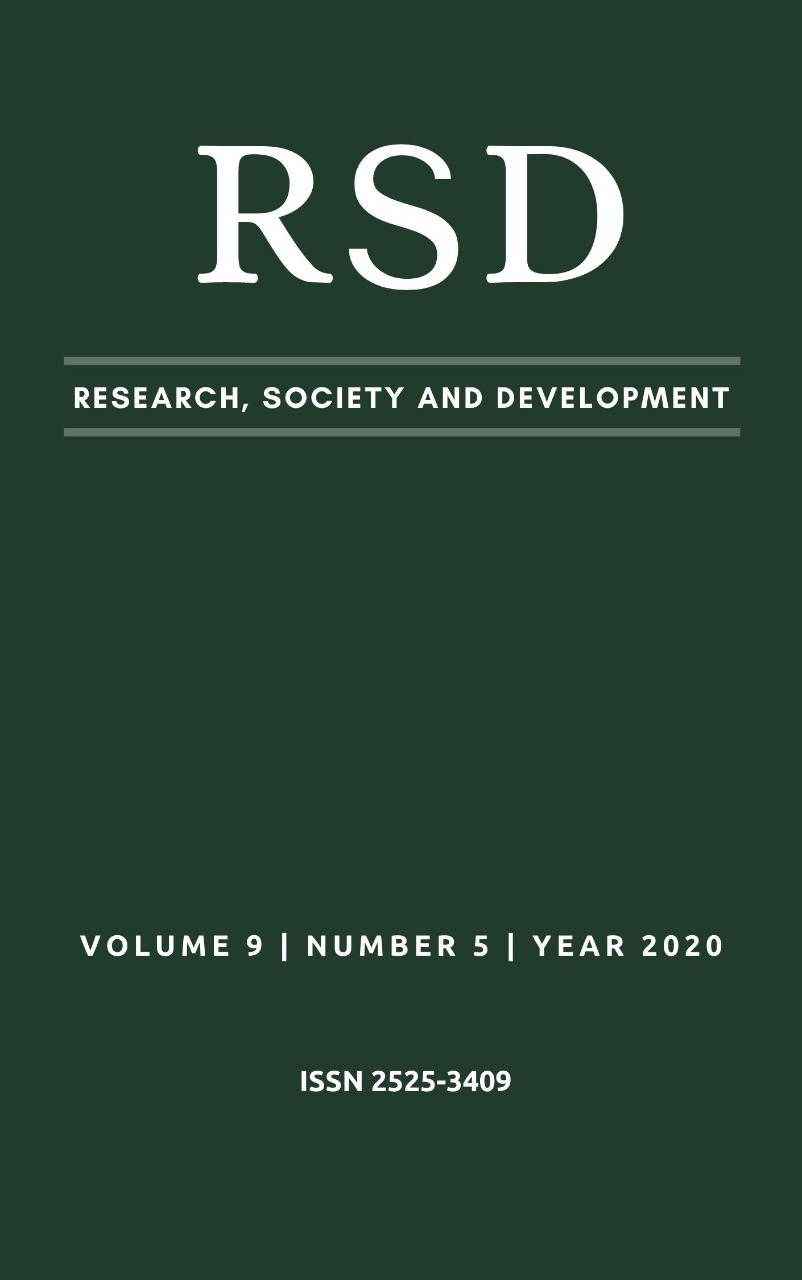Atividade científica e a questão da não neutralidade da ciência: perspectiva epistemológica de Hugh Lacey
DOI:
https://doi.org/10.33448/rsd-v9i5.3318Palavras-chave:
Hugh Lacey, Ciência, Atividade Científica, Educação Científica e Tecnológica.Resumo
Esse artigo tem a pretensão de provocar reflexões sobre atividade científica e a não neutralidade da ciência, tendo como fundamento epistemológico a perspectiva teórica de Hugh Lacey. Contemplando suas percepções sobre os valores e a atividade científica, destacam-se as perspectivas que perpetuam nas práticas da ciência contemporânea, bem como os valores modernos de controles que predominam no campo científico. Metodologicamente, classifica-se esta pesquisa como de natureza bibliográfica, de caráter descritivo e qualitativo. Os resultados obtidos enfatizam o pluralismo metodológico defendido pelo autor como princípio necessário para a neutralidade da ciência uma vez que a sua teoria parte do pressuposto de que existe uma relação dialética entre ciência, atividade científica e bem-estar humano. Destaca-se, também, a necessidade de que o ensino das ciências seja praticado a partir de perspectiva crítica reflexiva, sem ser relativista uma vez que a ciência é uma prática sócio-histórica inserida no mundo dos valores e da experiência humana, empreendida por agentes humanos, cujas ações são explicáveis em termos de suas crenças, percepções, deliberações, desejos, valores e outros ensejos intencionais.
Referências
Auler, D. (2007). Enfoque ciência-tecnologia-sociedade: pressupostos para o contexto brasileiro. Ciência e Ensino, Campinas, 1(esp.): 1.
Bazzo, W. A. (2017) Ciência, Tecnologia e Sociedade: e o contexto da educação tecnológica. Florianópolis – SC: UFSC.
Creswell, J. W. (2010). Projeto de pesquisa: métodos qualitativo, quantitativo e misto. tradução Magda Lopes. Porto Alegre: ARTMED.
Delizoicov, D. & Auler, D. (2011). Ciência, tecnologia e formação social do espaço: questões sobre a não-neutralidade. Alexandria – Revista de Educação em Ciência e Tecnologia, 4(2): 247-273.
Koche, J. C. (2009). Fundamentos de metodologia científica: teoria da ciência e iniciação científica. Petrópolis: Vozes.
Lakatos, E. M. & Marconi, M. de A. (2003). Metodologia do trabalho científico: procedimentos básicos, pesquisa bibliográfica, projeto e relatório, publicações e trabalhos científicos. São Paulo: Atlas.
Lacey, H. (1999). Is Science Value Free? Values and Scientific Understanding. London: Routledge.
Lacey, H. (2003). Existe uma distinção relevante entre valores cognitivos e sociais? Scientiae Studia, v. 1, n. 2, p. 121.49.
Lacey, H. (2008). Valores e atividade científica 1. São Paulo: Associação Filosófica Scientiae Studia/34.
Lacey, H. (2009). O lugar da ciência no mundo dos valores e da experiência humana. Sci. Stud.,São Paulo, v. 7,n. 4,out./dez.
Lacey, H. Valores e atividade científica 2. São Paulo: Associação Filosófica Scientiae Studia/34.
Lacey, H. (2015). Ciência, Valores e Alternativas II. A agroecologia: uma ilustração da fecundidade da pesquisa multiestratégica. Sci. Stud. Av., São Paulo, v. 29, n. 83, jan./abr.
Prodanov, C. C. & Freitas, E. C. de. (2013). Metodologia do trabalho científico: métodos e técnicas da pesquisa e do trabalho acadêmico. Novo Hamburgo/RS: Feevale.
YIN, R. K. (2001). Estudo de caso: planejamento e métodos. trad. Daniel Grassi. 2.ed. Porto Alegre: Bookman.
Downloads
Publicado
Edição
Seção
Licença
Autores que publicam nesta revista concordam com os seguintes termos:
1) Autores mantém os direitos autorais e concedem à revista o direito de primeira publicação, com o trabalho simultaneamente licenciado sob a Licença Creative Commons Attribution que permite o compartilhamento do trabalho com reconhecimento da autoria e publicação inicial nesta revista.
2) Autores têm autorização para assumir contratos adicionais separadamente, para distribuição não-exclusiva da versão do trabalho publicada nesta revista (ex.: publicar em repositório institucional ou como capítulo de livro), com reconhecimento de autoria e publicação inicial nesta revista.
3) Autores têm permissão e são estimulados a publicar e distribuir seu trabalho online (ex.: em repositórios institucionais ou na sua página pessoal) a qualquer ponto antes ou durante o processo editorial, já que isso pode gerar alterações produtivas, bem como aumentar o impacto e a citação do trabalho publicado.


